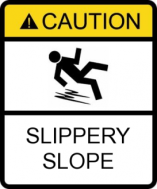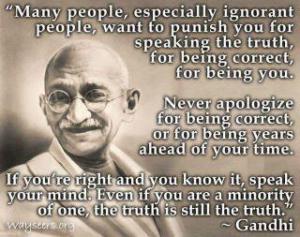 It’s been a long journey from my first post on January 23 to my final post, which is what you are now reading. I’ll admit that I had no idea what I was getting myself into when I enrolled in this policy class. It was totally different from what I imagined it would be, but in a good way. But little did I know that I was about to embark upon a journey that would push me beyond my comfort zone and challenge me to actively use what I was learning to inspire and empower others toward action. My topic started off extremely broad as I thought that I would look at all forms of human trafficking (labor and sex trafficking). But I knew that my personal interest was more so child sex trafficking so as unintentional as it seemed for me, that’s where my blog ended up.
It’s been a long journey from my first post on January 23 to my final post, which is what you are now reading. I’ll admit that I had no idea what I was getting myself into when I enrolled in this policy class. It was totally different from what I imagined it would be, but in a good way. But little did I know that I was about to embark upon a journey that would push me beyond my comfort zone and challenge me to actively use what I was learning to inspire and empower others toward action. My topic started off extremely broad as I thought that I would look at all forms of human trafficking (labor and sex trafficking). But I knew that my personal interest was more so child sex trafficking so as unintentional as it seemed for me, that’s where my blog ended up.
I expected more out of myself than what was required, which is a good thing. But like always, I over think EVERYTHING, most of the time to my own disadvantage. I’m very introspective and critical of myself. In creating this blog, I had all these good ideas, some of which never made it to the site. But nonetheless, I think I accomplished a lot and I’m very proud of myself. I think it took for me to show others outside of class what I was doing to realize that I had done good work and to really appreciate all the effort that I had invested in this site.
My main purpose in creating this blog (other than the fact that it was a requirement), was to educate as many people as I could about human trafficking in hopes that a seed of action would be planted. Last class we talked about our readings on “power” and how the people who have it intentionally create systems that enable them to maintain their power and make it almost impossible for others to grab hold of any of it. Victims of sex trafficking are often powerless against their parents, their traffickers, “Johns”, as well as the criminal justice system. Most of this is due to the “hidden” nature of human trafficking and how relaxed our current laws are. Policy advocacy is a way to upset the power imbalance and ensure that laws are put in place that protect our most vulnerable. I’m not expecting that people will necessarily read my blog and decide to become an advocate. All I can hope for is that people will read it and that it will spark conversation surrounding the issue and that one day conversation will spark passion that eventually leads to action, however small (this blog for example). How can we ever put an end to modern-day slavery if people don’t know that it truly exists and is happening in their own backyards?
What’s Next?
I would like to say that I will keep up this blog and continue to use it as an educational tool, but in the hustle and bustle of everyday life (family, work, school, other activities), that may not be possible. But I do know that my passion for this issue started way before this class and that this class has fed my passion through all the knowledge I’ve gained throughout the semester. Although I have not yet decided in what capacity, I know that I will be involved with the issue somehow and somewhere, whether it be through education, advocacy or prevention.







 A Virginia teen, missing since last Saturday, is now believed to be a victim of human trafficking. Here’s another reminder that human trafficking is happening in our own backyards…
A Virginia teen, missing since last Saturday, is now believed to be a victim of human trafficking. Here’s another reminder that human trafficking is happening in our own backyards…